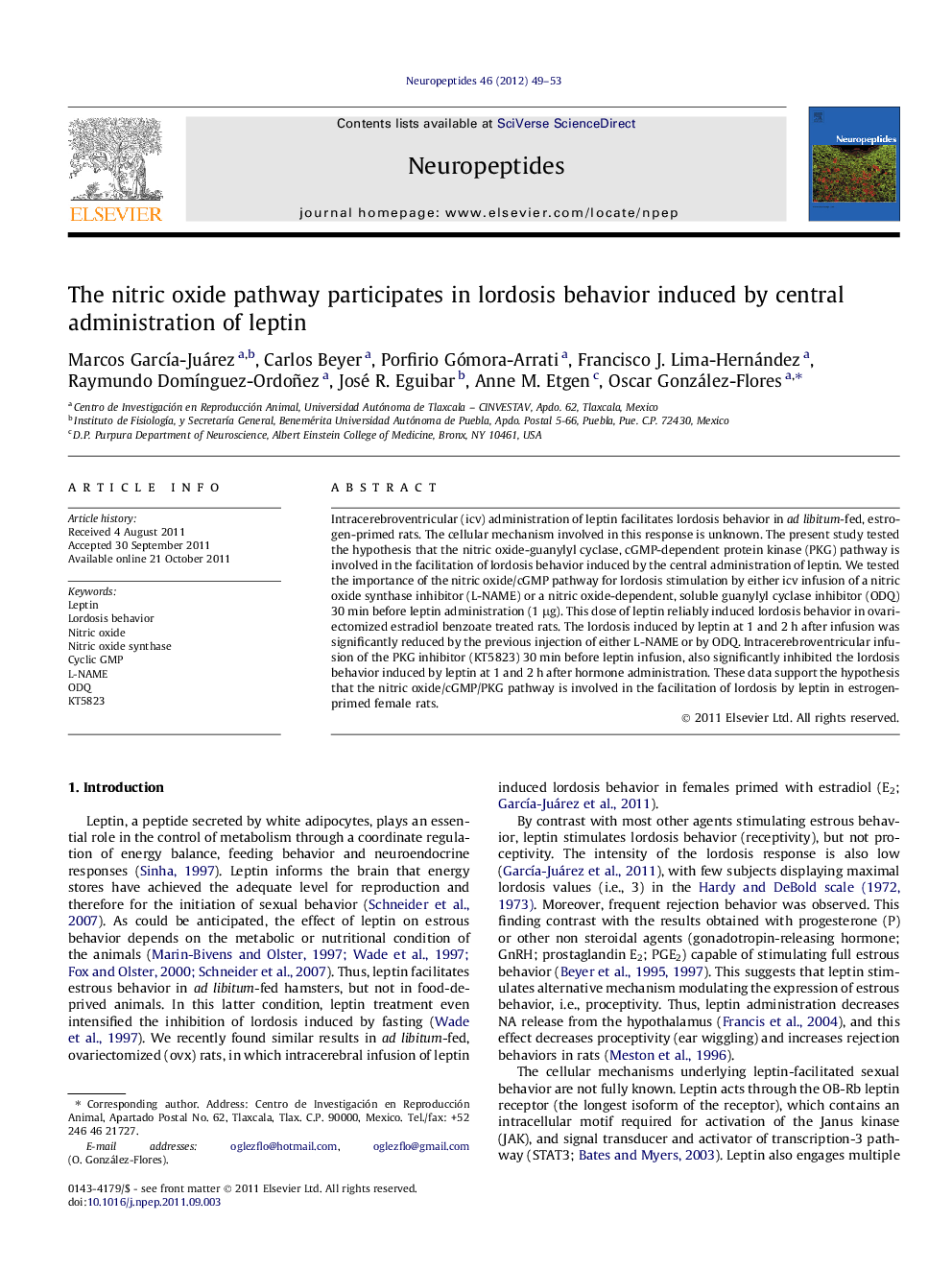| Article ID | Journal | Published Year | Pages | File Type |
|---|---|---|---|---|
| 2808301 | Neuropeptides | 2012 | 5 Pages |
Intracerebroventricular (icv) administration of leptin facilitates lordosis behavior in ad libitum-fed, estrogen-primed rats. The cellular mechanism involved in this response is unknown. The present study tested the hypothesis that the nitric oxide-guanylyl cyclase, cGMP-dependent protein kinase (PKG) pathway is involved in the facilitation of lordosis behavior induced by the central administration of leptin. We tested the importance of the nitric oxide/cGMP pathway for lordosis stimulation by either icv infusion of a nitric oxide synthase inhibitor (L-NAME) or a nitric oxide-dependent, soluble guanylyl cyclase inhibitor (ODQ) 30 min before leptin administration (1 μg). This dose of leptin reliably induced lordosis behavior in ovariectomized estradiol benzoate treated rats. The lordosis induced by leptin at 1 and 2 h after infusion was significantly reduced by the previous injection of either L-NAME or by ODQ. Intracerebroventricular infusion of the PKG inhibitor (KT5823) 30 min before leptin infusion, also significantly inhibited the lordosis behavior induced by leptin at 1 and 2 h after hormone administration. These data support the hypothesis that the nitric oxide/cGMP/PKG pathway is involved in the facilitation of lordosis by leptin in estrogen-primed female rats.
